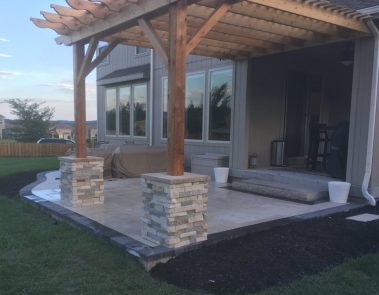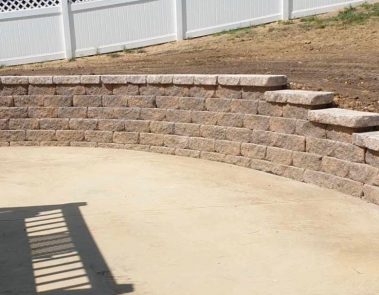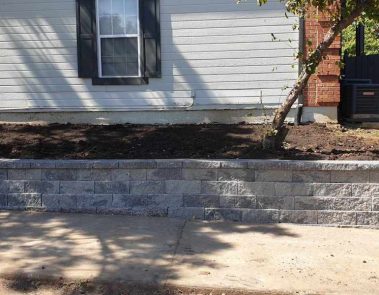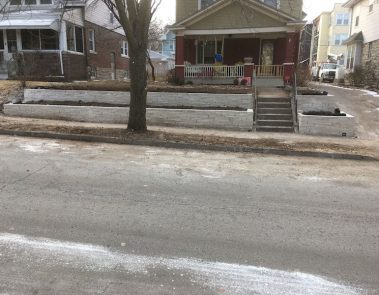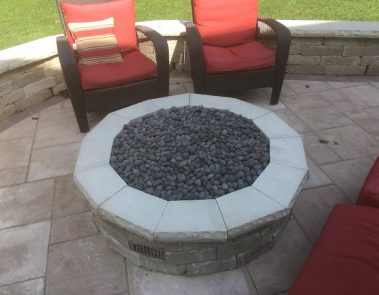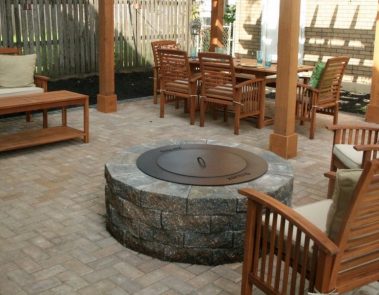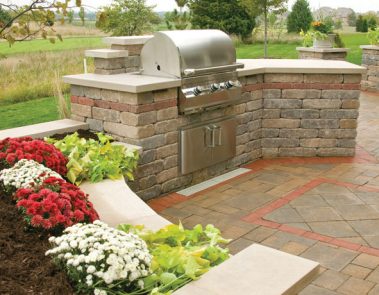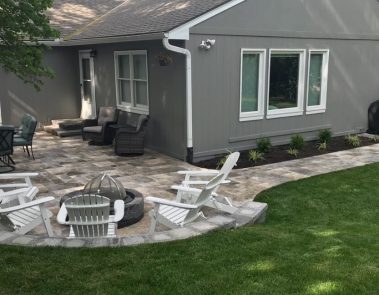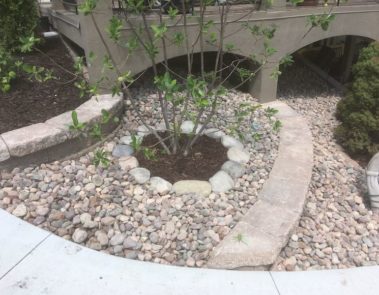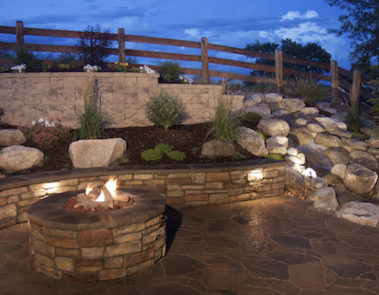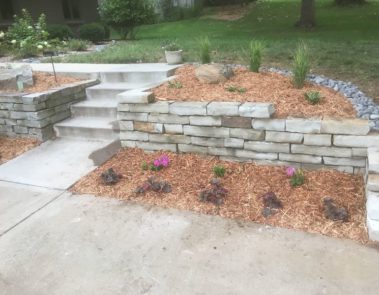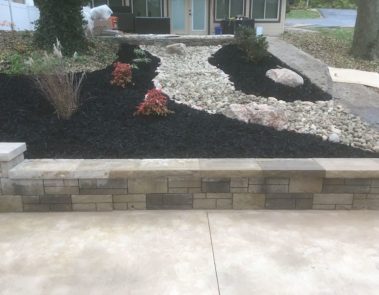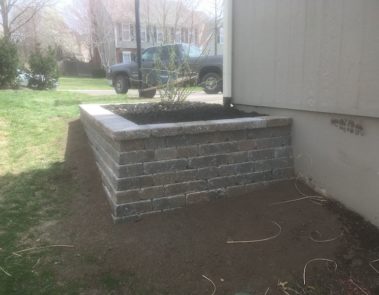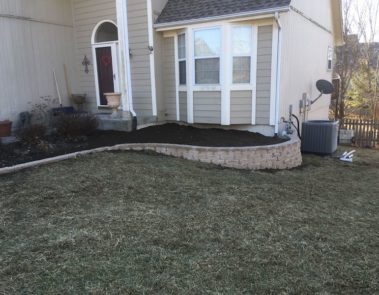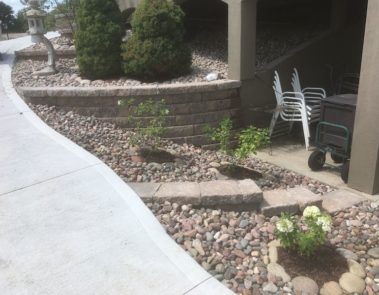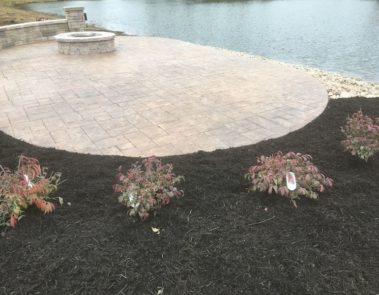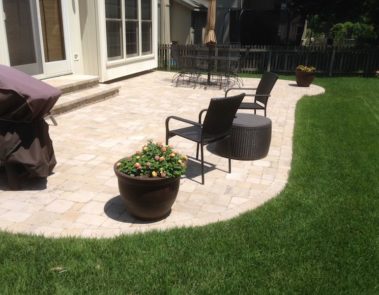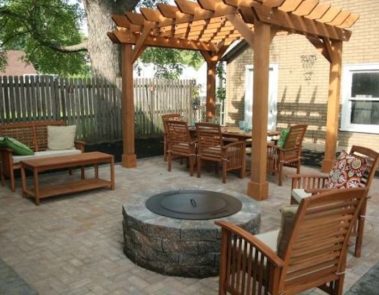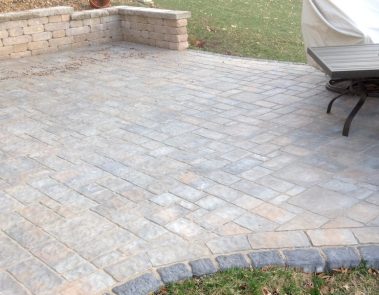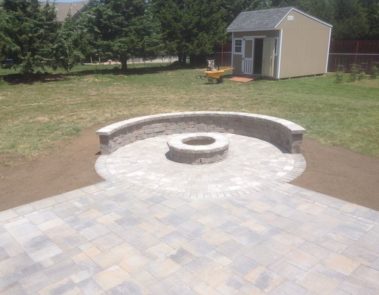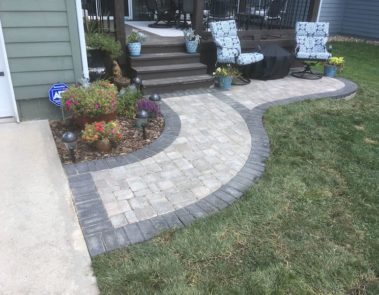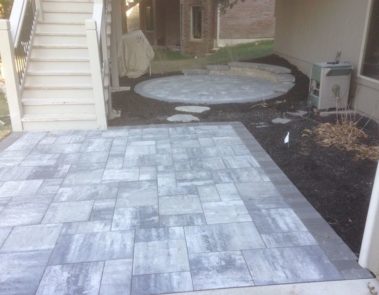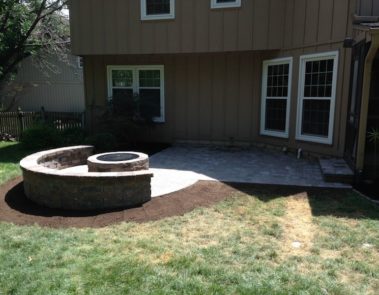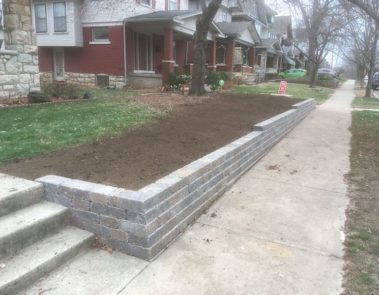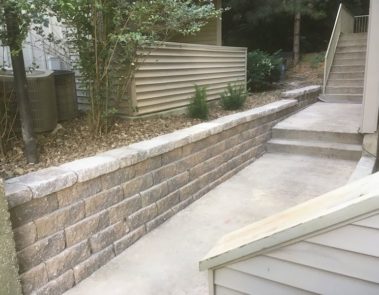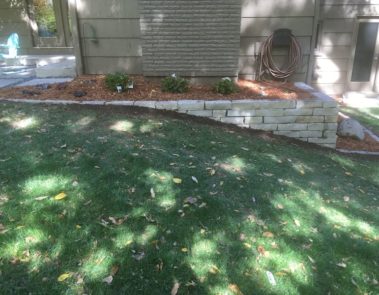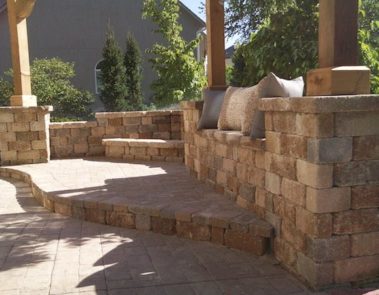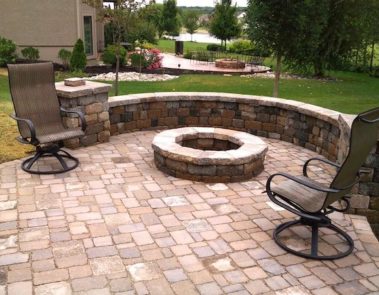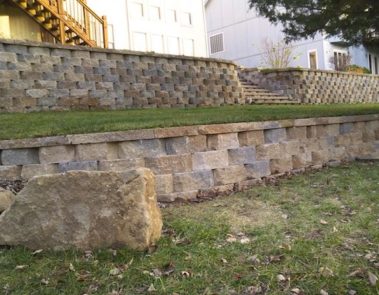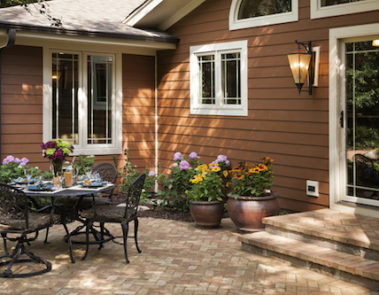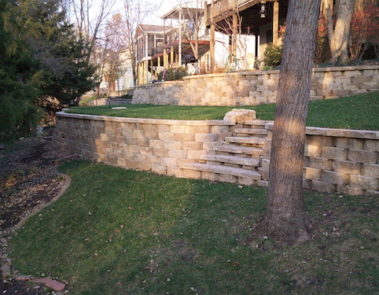Hopkins Lawn & Landscape
A Kansas City Hardscaping Company
Why Choose Pavers?
A paver patio has a long lifespan, several times longer than other options, often up to 50 years. A wood deck might only last 10 or 12 years. Concrete, whether stamped or standard finish is guaranteed to crack. A concrete patio is typically rated at 3000 to 45oo psi compressive strength. Addition of water on site typically lowers the strength by several hundred psi. Pavers on the other hand are made with high strength concrete with a minimum of 8000 psi compressive strength. Pavers are designed with gaps between each paver which allows for movement during our Kansas City freeze thaw cycles, which allows for movement without disturbing the function of aesthetics of the paver patio.
Paver Surface Options
There are several options for paver selection to fit your design tastes and help complement the style of your home. In recent years there has been several design options added to paver selection. Traditional pavers are made with concrete and there is gravel all the way to the top of the concrete in the paver. As the paver weathers, this gravel look will show through. Today there are pavers with face mix technology which keeps the pavers looking new for the life of the paver. You can even choose pavers with an integrated sealer to help protect your investment and keep it looking new for longer. Today the trend is leaning to larger pavers, many of which have textured finishes to make them look more like stone, with the ease of installing uniform sized pavers.
Base Options
In the Kansas City area there are several options for installing pavers. Most installers are installing pavers on a class 5 gravel, also known as AB3. AB3 consists of 3/4 inch gravel down to fines. A variation of this is to use 3/4 inch clean gravel. Another method is to install a concrete pad first and put the pavers on the concrete pad.
The benefits of installing a paver patio on AB3 base are cost and time efficiencies. As long as compaction is done by skilled workers, in 2 inch layers with several passes made per layer, your paver patio should stand the test of time. If there are water issues and the base material holds water, freeze thaw cycles can still affect the pavers and can cause settling.
A newer method for installing pavers is to install the pavers on 3/4 inch clean gravel, which is similar to installing pavers on AB3. The benefit is the free drainage under the pavers to protect from frost heave.
Installing pavers on a concrete costs more but gives the peace of mind that settling will not have to be addressed down the road. A possible downside is the pavers do not drain as easily on the underside, which can cause some efflorescence salts to appear on the pavers. Efflorescence can be cleaned off, but it would be an added maintenance step for your pavers.
We install pavers on either 3/4 inch compacted grave or concrete, and can give you quotes on both systems. This way you can decide which paver patio option is right for you.
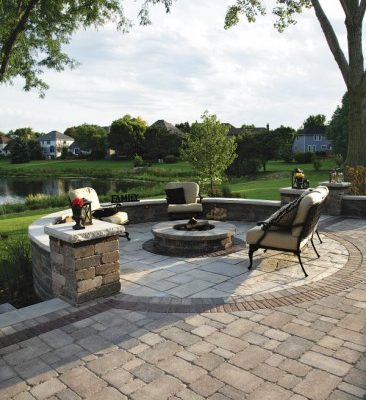
Photo Unilock: Brussels Block Paver Copthorne Banding Olde Quarry Wall
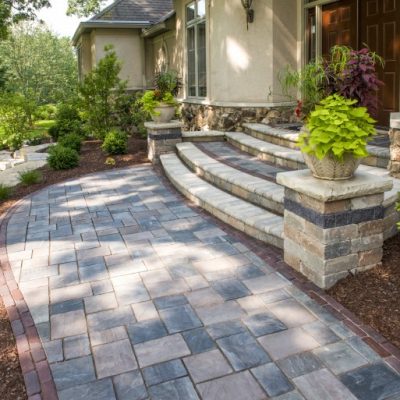
Photo Unilock: Richcliff Paver with Copthorne Border
Some Of Our Work
Paver Overlay
Outdoor Living SpacesUnilock Pavers With Cedar Pergola
Outdoor Living SpacesLiberty Retaining Wall
WallsRetaining Wall In Lenexa
WallsNatural Stone Terraced Wall
WallsGas Fire Pit
Fire PitsFire Pit With Smoke Reducing Insert
Fire PitsPatio with Outdoor Grill Station Featured in Pavestone
Outdoor Living SpacesPaver Patio With Fire Pit
Fire Pits, Outdoor Living SpacesMagnolia Tree
LandscapingPatio With Seat Wall And Fire Pit
Fire Pits, Landscaping, Outdoor Living Spaces, WallsNatural Stone Wall And Landscaping
Landscaping, WallsRetaining Wall With Dry Creek Bed
Landscaping, WallsPlanter Bed
WallsFront Yard Wall
WallsTerraced Wall
Landscaping, WallsPatio By The Lake
Outdoor Living SpacesKansas City Paver Patio
Outdoor Living SpacesPaver Patio Kansas City With Pergola
Outdoor Living SpacesPaver Patio
Outdoor Living SpacesPatio With Fire Pit
Outdoor Living SpacesEntrance With Pavers
Outdoor Living SpacesPaver Patio
Outdoor Living SpacesPaver Patio
Outdoor Living SpacesFront Yard Wall
WallsApartment Retaining Wall Replacement
WallsNatural Stone Wall
Landscaping, WallsBackyard Fire Pit
Fire PitsPatio with seating
Outdoor Living SpacesPatio with fire pit
Fire Pits, Outdoor Living SpacesRetaining Wall With Steps
WallsBrick Patio
Outdoor Living SpacesRetaining wall
Walls






